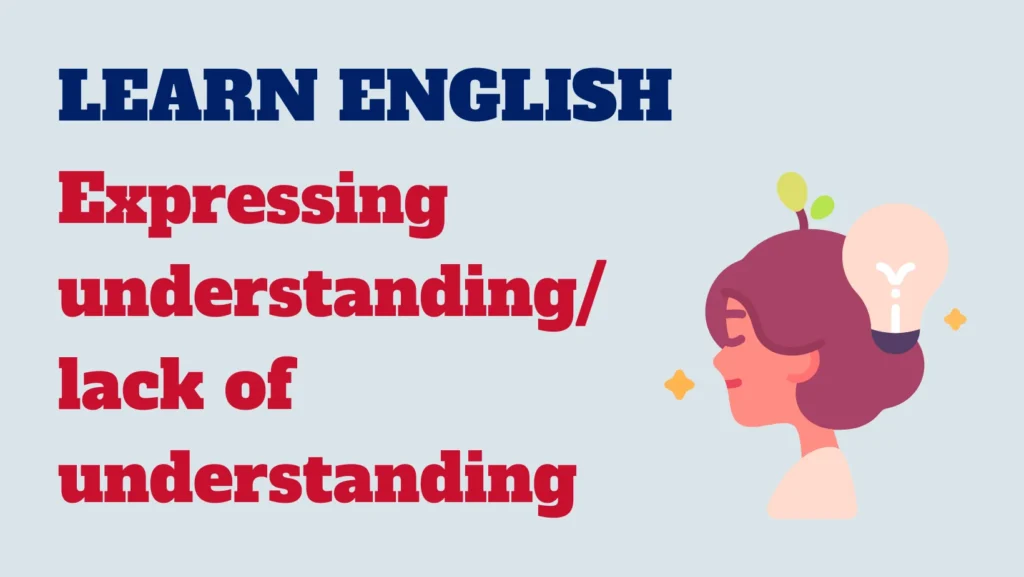English language offers a variety of idiomatic expressions to convey understanding or the lack thereof.

In this lesson, we’ll present common expressions to help you communicate more effectively and enhance your comprehension in English.
Expressing understanding:
“I understand”
This simple and direct expression signifies that you have grasped what has been said or explained. Use it when you are confident in your understanding.
Example:
“I’ve read the book, and I understand the plot now.”
“I get it”
Similar to “I understand,” this expression is straightforward and commonly used in informal settings.
Example:
“Explain the joke one more time. Ah, now I get it!”
“I comprehend”
A more formal way of saying “I understand,” suitable for professional or academic situations.
Example:
“After analyzing the report thoroughly, I comprehend the main points.”
Expressing lack of understanding:
“I don’t understand”
Use this expression when you are unable to grasp the meaning of what is being said or explained.
Example:
“Sorry, I don’t understand the game instructions.”
“I’m lost”
This expression indicates complete confusion or an inability to comprehend the situation or topic.
Example:
“Advanced physics is so complex; I’m totally lost.”
“It’s over my head”
When faced with something too complicated or beyond your knowledge, you can say, “It’s over my head.”
Example:
“I’m sorry, but advanced mathematics is way over my head.”
“It’s Greek to me”
This phrase suggests that what you hear or read is incomprehensible, as if it were written in Greek, a foreign language to you.
Example:
“The technical explanations in the manual are Greek to me.”
Feel free to use these expressions in your English conversations. They will help you communicate more clearly and ask for clarification when needed. Regular practice will improve your language comprehension and make you more comfortable in your exchanges with English speakers. Happy learning!



